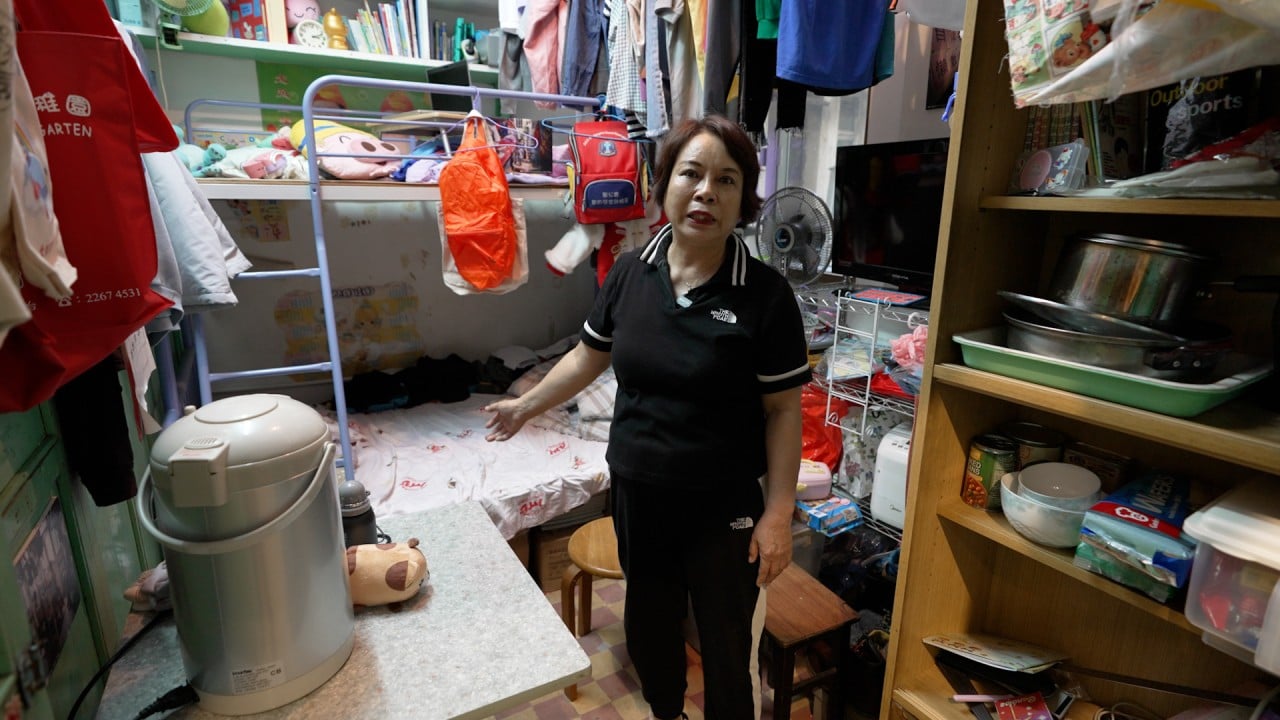
Over a quarter of Hongkongers ready to buy homes, scrap renting plans if cooling measures are lifted, Midland survey finds
- If the easing of property curbs is announced, many tenants will switch from renting to buying and the property market will regain its upwards momentum, Midland Realty’s Sammy Po says
- The overall property index suggested further weakness, with confidence slipping to minus 63 in September from minus 60 in August, a study by Rics and Spacious shows
More than a quarter of potential homebuyers are likely to abandon their plans of waiting it out and renting a flat if the Hong Kong government scraps property cooling measures, according to a survey by Midland Realty, one of the city’s largest property agencies.
The Post has reported that Lee, Hong Kong’s leader, is set to announce the relaxation of property cooling measures, which could include the scrapping or lowering of stamp duties on some transactions.
“If the easing of property curbs is announced, it could loosen up pent-up demand for housing, stabilise property prices and help people who need to buy a home,” said Sammy Po Siu-ming, CEO of Midland Realty’s residential division for Hong Kong and Macau. “Many tenants will switch from renting to buying and the property market will regain its upwards momentum.”
The online survey was conducted mid-October with the aim of finding out Hongkongers’ views on the widely anticipated lifting of the property cooling restrictions, which were implemented to prevent excessive speculation as well as to make homes more affordable.
The potential easing of these measures is likely to impact home prices, but not so much rents, the study said.
In case of easing, 35.1 per cent said they expected property prices to rise, and 23.2 per cent in case there was no easing. As for rents, 32.3 per cent said rental prices would rise in case of easing, while 33.4 per cent said they would in case no curbs were removed.
Po suggested homebuyers look at “oversold” housing estates, which saw prices fall by more than 10 per cent. These include estates in Tuen Mun, Tseung Kwan O, Tsuen Wan, Taikoo Shing, Sha Tin and Hung Hom, among others.
Government regulations, loan interest rates and global conflicts were among the reasons cited by participants for their perceptions of the property market, according to the study.
Notwithstanding the apparent surge in sentiment towards the lettings market, the overall property index indicated further weakness, with confidence slipping to minus 63 in September from minus 60 in August, the study showed.
Hong Kong’s de facto central bank has raised the base rate by 5.25 per cent since March 2022, in lockstep with the US Federal Reserve’s monetary tightening stance, to keep the city’s currency pegged to the US dollar.
The rate hikes have pushed the cost of money in Hong Kong to a 16-year high and made mortgage repayments much less affordable.
Meanwhile, the Hong Kong government adjusted its full-year growth forecast in August to between 4 and 5 per cent from 3.5 to 5.5 per cent, saying that weak global trade would continue to hobble the local economy.
Expectations of further interest rate hikes remain, as the US has yet to bring consumer price rises down to its target of 2 per cent. The country’s inflation reading stood at 3.7 per cent in September.


